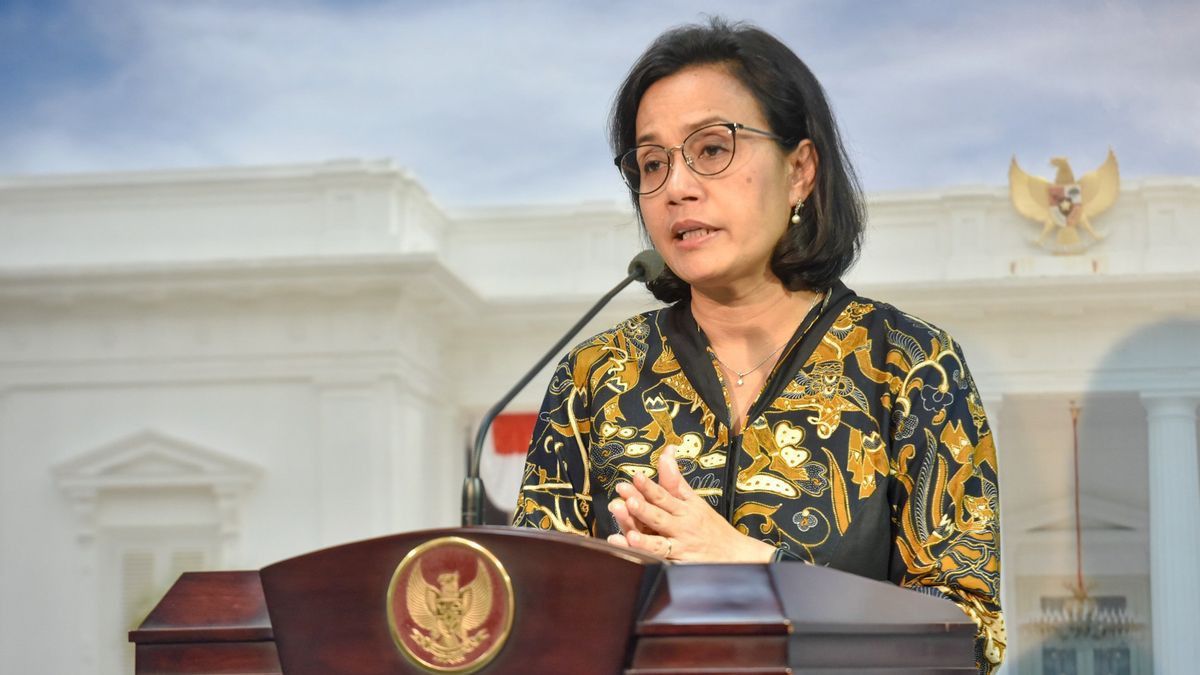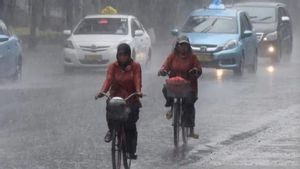JAKARTA - Indonesia's debt under the administration of President Joko Widodo (Jokowi) continues to mount every year. This time, according to the Minister of Finance (Minister of Finance) Sri Mulyani, Indonesia is again in debt to save citizens and the country's economy which has been eroded by the COVID-19 pandemic. The question is, is debt the only way to save our economy?
As of the end of June 2021, as quoted from the KITA APBN report, the government's debt position was at IDR 6,554.56 trillion with a debt-to-GDP ratio of 41.35 percent. This figure has increased compared to the same period last year.
At the end of June 2020, the government's debt position was recorded at Rp5,264 trillion with a ratio of 32.67 percent to GDP. In other words, there is an 8.68 percent increase in the ratio of government debt to GDP this year.
The composition of this government debt is mostly in the form of Government Securities 87.14 percent or Rp. 5,711 trillion. Meanwhile, around 12 percent or Rp. 830 trillion came from foreign loans.
Indeed, the increase in the amount of debt was mainly due to the economic slowdown that occurred during the COVID-19 pandemic. However, this is a yellow light for the government to continue to maintain the debt-to-GDP ratio threshold to below 60 percent as mandated in Law No. 17 of 2003.

During June last month, the government signed two loan agreements. First, a loan from Agence Francaise de Development (AFD) worth 107 million US dollars on 8 June. This loan is used for research on marine natural resources in Indonesian waters.
Then the second, the most, a loan from the World Bank of 500 million US dollars on June 25. The loan is to support the strengthening of the health system, ongoing support to respond to the COVID-19 pandemic, and readiness for vaccine implementation.
Minister of Finance Sri Mulyani, during the Book Review on Navigating the Pandemic Storm, last Saturday said debt is one of the instruments to save society and the economy during the COVID-19 pandemic. For that he said anything would be done in order to achieve these goals, including taking debt.
"We at the Ministry of Finance respond with whatever it takes, whatever we do to save the citizens and the Indonesian economy, and that has implications for the state budget deficit. Why do we have to increase debt? As if increasing debt is the goal, even though it is an instrument, whatever it takes to save our citizens and our economy," said Sri Mulyani.
According to Sri Mulyani, the pandemic is an extraordinary challenge that needs to be responded to in an unusual way as well. "Pandemics are extraordinary challenges, and they require extraordinary policy responses."

What Sri Mulyani said seems contradictory to her policy. Because, in the midst of a pandemic crisis situation like this, according to the Director of the Center of Economic and Law Studies (CELIOS) Bhima Yudhistira, the management of state finances is still normal.
"The government is not creative in the way it (manages state finances). The situation is crisis but management is still normal. Even though it has been provided with Law No. 2/2020," Bhima told VOI.
Bhima explained that there are still budget posts that can be used for handling the pandemic. As of June 2021 alone, according to him, there is still a remaining budget of up to IDR 136 trillion that can be utilized. "It can be used for greater social protection and handling the pandemic."
In addition, said Bhima, some government projects could also be shifted in advance to deal with the pandemic. "The government should postpone infrastructure projects whose allocation is 417 trillion."
Finally, according to Bhima, the budget that can be used for the pandemic is cutting official travel, allowances and ministerial salaries. "The next step is cutting official travel to allowances and salaries of ministers to echelon 1 officials," he concluded.
*Read other information about DEBT or other interesting articles from Ramdan Febrian Arifin.
Other BERNASThe English, Chinese, Japanese, Arabic, and French versions are automatically generated by the AI. So there may still be inaccuracies in translating, please always see Indonesian as our main language. (system supported by DigitalSiber.id)













